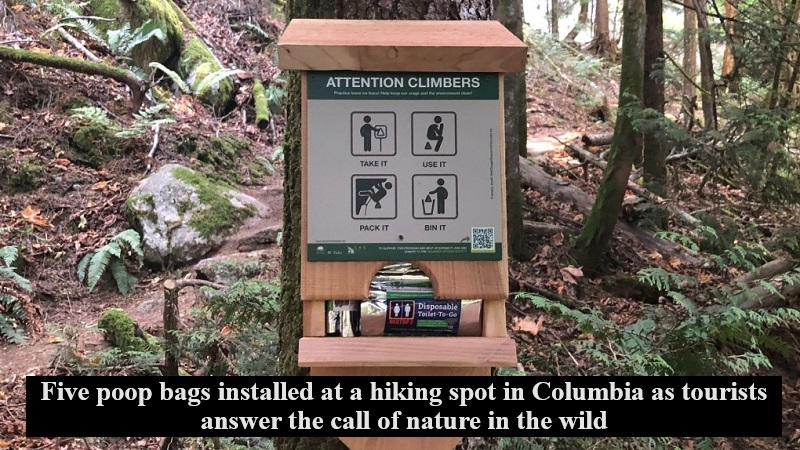
The growing number of hikers, campers, and climbers in Squamish, southwestern British Columbia, Canada, has led to increased tensions with locals, particularly due to visitors choosing to relieve themselves in the wild.
The Squamish Access Society (SAS) recently announced a partnership with the province’s park service and local businesses to install five poop bag dispensers at popular climbing locations, with an additional four dispensers planned in the coming weeks.
While many visitors leave the temperate rainforest with an appreciation for its rugged beauty, not everyone follows the principles of “leave no trace” camping or climbing. Unfortunate discoveries of human waste have been made on less-traveled hiking trails or remote crag ledges. Unlike typical dog waste bags found in city parks, these dispensers will contain waste-alleviating gel bags known as Wag bags, which contain enzymes to help break down fecal matter and minimize odor.
For seasoned outdoor enthusiasts, these bags are already a standard part of their gear list. However, with the influence of social media, more hikers, campers, and climbers are venturing into the wilderness, and SAS felt that the issue was not resolving itself.
Ben Webster, chair of the SAS, mentioned, “There’s been a surge in the use of our backcountry areas in southwest B.C. and the Sea-to-Sky corridor, and rock climbing is very much a part of that. Increasingly, we are finding issues with human waste, particularly in our more remote crags.”
The effectiveness of these bags was tested by placing one in a hot car for a day, and there were no odors afterward, according to Webster. These bags are sturdy, leak-resistant, and meant to be used and disposed of properly.
To ensure proper usage, the group will include pictograms at the stations demonstrating how to use the bags for outdoor sanitation.
Katy Holm, one of the owners of Climb On, did not place blame on the rock climbing community for the issue of human waste in the Squamish area, attributing it more to people camping or living in their vehicles. She stated that climbers are generally familiar with these bags, especially those who have traveled and encountered similar practices in other areas.

Post Your Comments